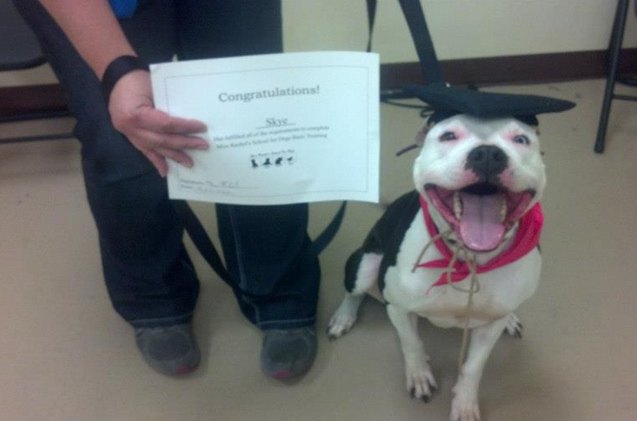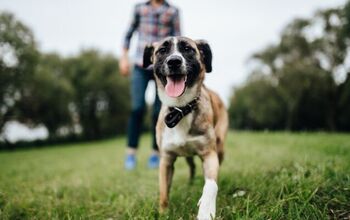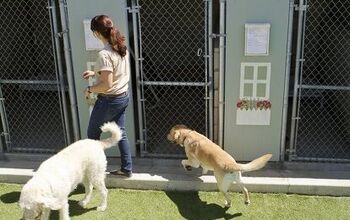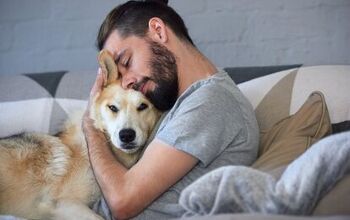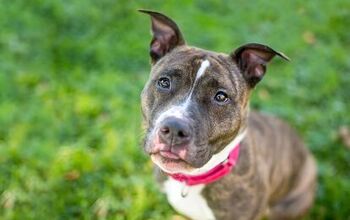How To Find The Right Dog Trainer For You And Your Dog

I’ve worked in the industry for almost 8 years now, and I’ve seen it all. There is a wide spectrum in the dog training world; from pain-inducing corrections to purely positive motivation, where every negative behavior is completely ignored. And there’s one thing in common every trainer will tell you: that their method is the only method that works. And I’m here to disagree. Different methods work for different dogs and people, but there are a few basic rules to follow when hiring a dog trainer:
Personable/Dogable: When you look to hire a trainer, you want someone you get along with. Avoid trainers that scare you or make you feel uncomfortable. If you’re not comfortable, your dog will feel it in the leash and react. You won’t learn nearly as well if your focus is on not making them angry. If the trainer yells and gives YOU harsh corrections, they most likely will with your dog as well. A big part of my teaching is noticing how my human students are feeling. I know they will be better handlers if they’re smiling and enjoying themselves.
As much as you need to like your trainer, the same goes for your dog. If he is scared of the person, your dog isn’t going to learn as well as he should. Find someone you both get along with.
Related: AKC Canine Good Citizen
Relatable: We aren’t all dog trainers. If we were, then you wouldn’t be in the position of hiring one. You are looking for a professional to help you understand your dog better. This means you should be able to understand them. Stay away from trainers who only use technical terms and speak down to you. The point is for you to understand them, not to be confused.
Professional: As with hiring anyone, you want to make sure the person you choose to work with you and your dog is a real professional. Most states do not have regulations on who can call themselves a dog trainer. There are no national certifications, only a handful of professional organizations. Make sure that the trainer you interview is a member of at least one of these, and that they have a legal business. You don’t want to hire someone who views the profession as an under-the-table gig, especially if you are getting a trainer because your dog has behavior problems. The last thing you want is an incident where the trainer doesn’t have the insurance to cover it. On the other hand, please don’t expect us to show up in a suit – we do spend our days outside getting drooled on!
Related: Introduction To Agility Training
Methods You Approve: I never condone the use of pain when training a dog. There are many methods out there that are easier and don’t hurt. The use of physical pain is inhumane and often makes the problem worse. Don’t hire a trainer that uses any of these:
- Prong Collars
- Choke Chains
- Shock Collars
- Bark Collars
- Physical Corrections: scruffing, forced submissions, hitting, kneeing, etc.
- ‘Day Training’ or training your dog when you aren’t around. There are very few times when this type of training is acceptable, since you’re the dog’s main handler. Trainers who recommend day training typically do so because they don’t want you to see what is happening to the dog.
With that being said, as long as you stay on the positive spectrum of the obedience training, there’s a little bit of leeway. Dogs are just as much individuals as people are. Some dogs will work solely for toys, where others require a clicker and treats. Pick what works for you and your dog. Personally, I love using the clicker and I believe it’s a wonderful tool. But I also understand that training can be overwhelming, and some people can’t manage the clicker on top of the dog, the hand signals, the verbal commands and the praise. It only works if it’s used properly, so I introduce it on a case-by-case basis.
When done properly, dog obedience training can save a life. The entire reason I opened my own company was because I lost my dog due to a car accident. Hers wasn’t due to a lack of training, but so many times it is. It may seem like a chore, but the payoff is worth it. Just make sure to find a trainer that you and your dog give two paws up.
Rachel Leavy lives in Rochester, New York with her dog, Maria, and her gecko, Nigel. She has loved animals all her life, and has owned her own dog training and walking company for five years. When she’s not playing with puppies, she can usually be found writing short stories, riding horses or out at a play.

Rachel Leavy lives in Rochester, New York with her dog, Maria, and her gecko, Nigel. She has loved animals all her life, and has owned her own dog training and walking company for five years. When she's not playing with puppies, she can usually be found writing short stories, riding horses or out at a play.
More by Rachel Leavy



